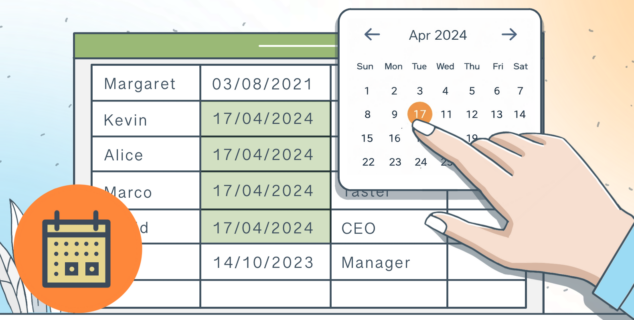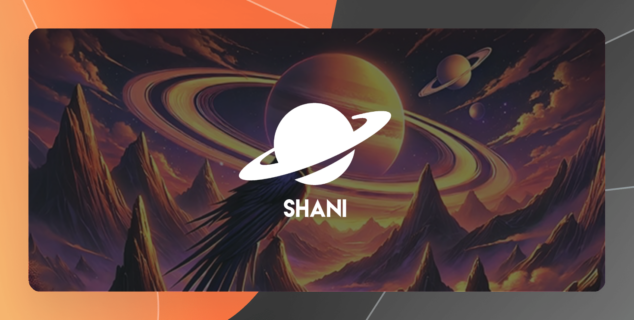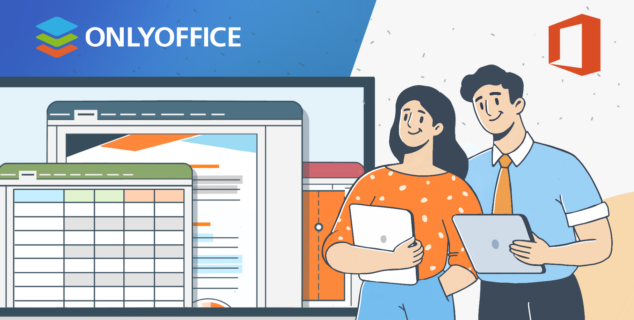8 Best ERP software solutions for 2025
As companies grow and expand their operations, the need for efficient management systems becomes more critical than ever. In this article, we will explore the best ERP software available in 2025, analyze their core features, and help you determine which solution is the right fit for your organization.

What is ERP software?
Enterprise Resource Planning (ERP) software is a category of business management tools that integrate various functions—such as accounting, procurement, human resources, inventory management, customer relationship management (CRM), and project planning—into a single system. Instead of using disconnected tools for different departments, ERP unifies data and processes, offering a centralized view of business operations.
Modern ERP systems often include real-time analytics, cloud deployment, and mobile access to ensure seamless collaboration and decision-making across teams. These solutions can be tailored for enterprises of all sizes and industries, offering flexibility, scalability, and efficiency.
Benefits of ERP software
Implementing a well-designed ERP system provides several strategic advantages:
- Improved efficiency: By automating repetitive tasks and standardizing business processes, ERP software reduces manual workloads and human error.
- Centralized data: It allows real-time data access and consistency across departments, supporting more informed decision-making.
- Enhanced collaboration: Teams can work together more effectively with shared platforms and synchronized tools.
- Scalability: ERP systems can evolve with your business, accommodating new users, additional processes, and expanded operations.
- Regulatory compliance: Many ERP platforms help businesses stay compliant with industry regulations through built-in reporting and documentation features.
Now that we’ve covered what ERP software is and why it matters, let’s explore some of the top ERP solutions to consider in 2025.
Best ERP software platforms in 2025
1. Odoo

Odoo stands out as one of the most versatile and cost-effective ERP software for small businesses and mid-sized companies. Its open-source foundation allows for extensive customization, making it particularly appealing to developers and businesses with unique process requirements.
What makes Odoo unique is its modular structure. You can start with basic applications such as accounting or CRM and add other modules—like inventory, e-commerce, or marketing automation—as your needs evolve. This approach makes Odoo highly adaptable and scalable.
Despite being open-source, Odoo offers a polished and modern user interface. It also supports third-party integrations, has a strong developer community, and provides both self-hosted and cloud versions.
Notably, it integrates with ONLYOFFICE to enable real-time document editing and collaboration within the platform. Plus, the ONLYOFFICE Templates app for Odoo lets users generate business documents from pre-designed forms using existing Odoo data—streamlining workflows and reducing manual work.
Odoo is a smart choice for businesses that want full control over their software environment without incurring the high costs typically associated with enterprise-level solutions.
Pros:
- Open-source and highly customizable
- Affordable with a free Community edition
- Wide range of modules and third-party apps
- Clean and modern interface
- Integration with ONLYOFFICE
Cons:
- Requires technical expertise for advanced customization
- Limited customer support in the free version
- Some features may require additional modules
Best for: Small to mid-sized businesses needing a flexible, modular ERP platform
2. SAP S/4HANA
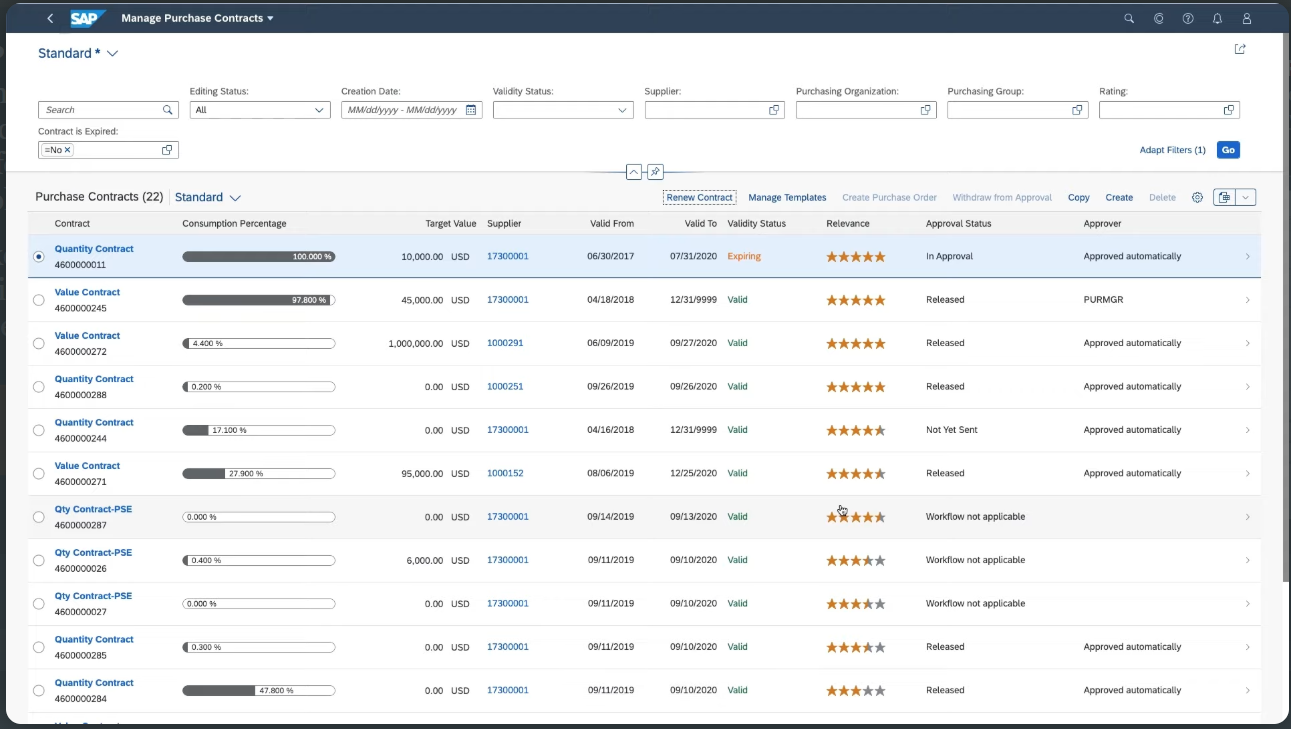
SAP S/4HANA is often considered the gold standard of enterprise resource planning software for large-scale organizations. Built on SAP HANA— an in-memory database platform—this next-generation ERP system offers real-time processing, advanced analytics, and AI-powered automation.
SAP S/4HANA is designed for digital transformation at scale. It supports core business processes such as manufacturing, supply chain management, procurement, and finance with deep functionality and robust security. It’s particularly well-suited to multinational enterprises with complex compliance, reporting, and localization needs.
The platform offers multiple deployment options—cloud, on-premise, or hybrid—allowing organizations to choose the environment that best suits their IT strategy. With SAP’s long-standing industry expertise and commitment to innovation, S/4HANA remains a strong contender for businesses that demand maximum performance and flexibility from their ERP system.
Pros:
- Powerful real-time analytics with in-memory processing
- Supports complex workflows and regulatory compliance
- Multiple deployment options (cloud, on-premise, hybrid)
- Strong industry-specific capabilities
Cons:
- High cost of implementation and licensing
- Requires specialized IT resources for deployment and maintenance
- Steep learning curve for new users
Best for: Large enterprises with complex business processes and global operations
3. Zoho Creator and Zoho ERP Ecosystem (Customizable Modular ERP)

Zoho offers a modular, cloud-based ecosystem of business applications that together provide ERP-level functionality. Instead of a single ERP product, Zoho enables businesses to integrate essential tools like CRM, inventory management, accounting, HR, and project tracking into one cohesive system. This approach is ideal for small and medium-sized businesses looking for flexibility, scalability, and affordability.
Zoho’s cloud-first strategy ensures high accessibility and native mobile support. For organizations already using tools like Zoho CRM or Zoho Books, expanding into a broader ERP setup is seamless. While it may lack the deep vertical customization of enterprise-grade ERPs, Zoho remains a strong choice for businesses seeking simplicity, ease of use, and a cost-effective alternative.
Pros:
- User-friendly and intuitive interface
- Affordable pricing for SMBs
- Seamless integration across Zoho apps
- Quick setup and deployment
Cons:
- Not a traditional all-in-one ERP system
- Limited customization for complex operations
- Third-party integrations can be limited
Best for: Small to mid-sized businesses seeking an affordable, flexible ERP alternative using integrated apps.
4. ONLYOFFICE DocSpace
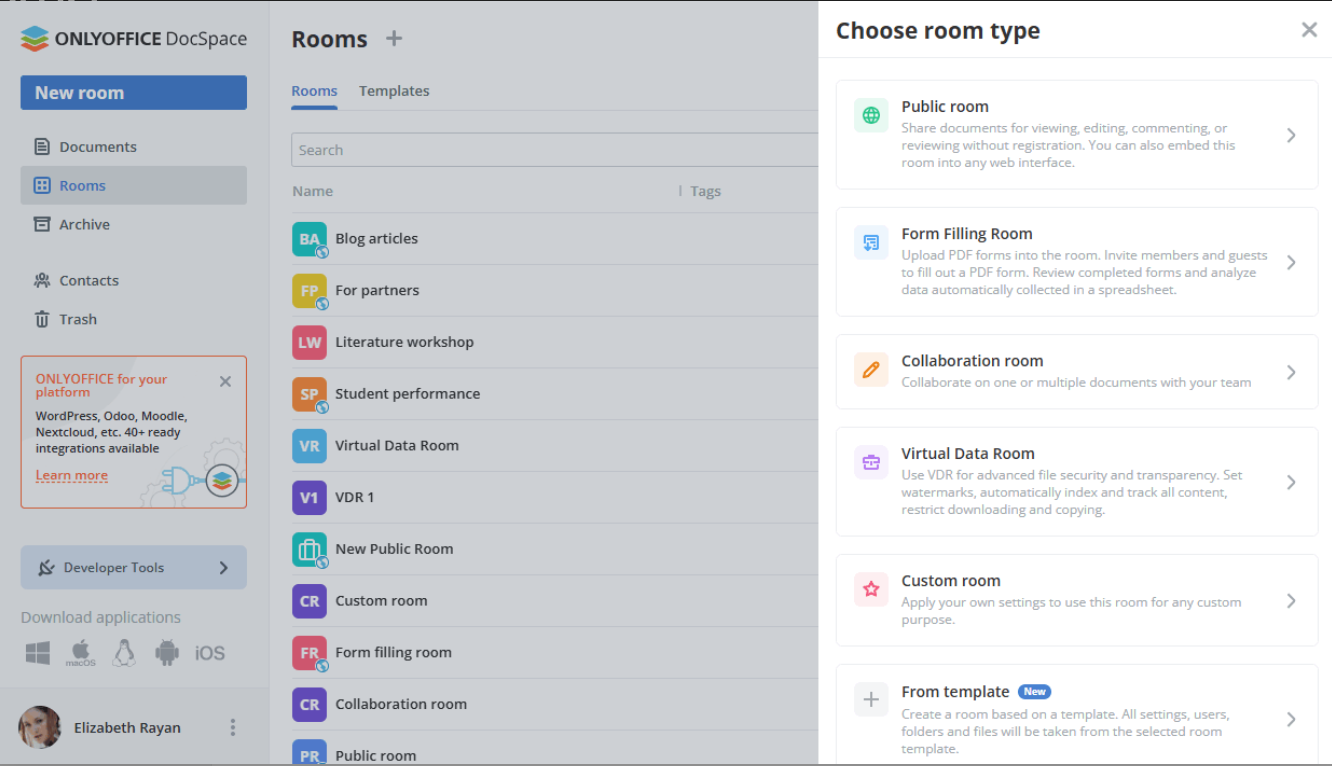
Although not a traditional ERP platform, ONLYOFFICE DocSpace brings essential enterprise resource planning capabilities through its focus on secure document collaboration, structured data handling, and team coordination. Instead of managing business processes like finance or inventory, DocSpace complements these systems by ensuring that the underlying document workflows—contracts, reports, technical documentation, and more—are handled in a centralized and highly secure environment. This makes it a valuable component within a broader ERP infrastructure or an ideal standalone document management solution for organizations looking to improve operational transparency and collaboration.
With DocSpace, teams can create dedicated rooms tailored to specific projects, departments, or external stakeholders. Rooms are built for flexibility, allowing internal users and invited guests—such as partners, contractors, or clients—to view, co-edit, comment on, and share documents with precision. Access can be controlled down to the role level, including view-only, editing, reviewing, and administrative permissions.
DocSpace supports a wide range of file formats, including DOCX, XLSX, PPTX, ODT, ODS, ODP, PDF, TXT, CSV, and more. It allows users to work with these files directly in the browser, eliminating the need for additional software installations. This broad format compatibility ensures seamless integration into diverse business environments and minimizes compatibility issues when exchanging files with external stakeholders.
What further sets DocSpace apart is its integration flexibility and AI-powered capabilities. It can be deployed both in the cloud or on-premises, and integrates easily with third-party platforms and storage services. AI tools within DocSpace assist with automatic document summarization, grammar and style enhancements, and smart search functionality, making routine tasks faster and enhancing content accuracy.
In short, ONLYOFFICE DocSpace is an excellent choice for businesses that require secure, scalable, and intelligent document collaboration, especially when integrated into or complementing a full ERP system.
Pros:
- Secure document sharing and role-based permissions
- Supports all popular document formats
- Easily integrates with third-party tools and storage services
- Available for both cloud and self-hosted deployment
Cons:
- Not a full ERP system by itself (best used in tandem)
Best for: Teams and organizations that need secure document collaboration within or alongside an ERP system
5. Oracle NetSuite

A long-standing leader in the ERP market, Oracle NetSuite offers a complete cloud ERP software solution that caters to businesses of all sizes, especially mid-sized companies and large enterprises. NetSuite is designed to unify financials, CRM, supply chain, and e-commerce into a single, cloud-native platform.
One of NetSuite’s biggest strengths is its ability to scale. It’s ideal for fast-growing companies and those operating across multiple geographies. With its built-in compliance and reporting tools, NetSuite is well-equipped to handle the regulatory requirements of international business.
Another benefit is its real-time dashboard system, which provides executives and managers with up-to-the-minute insights on financial performance, sales forecasts, and inventory status. This makes it a strong contender for organizations seeking robust, data-driven operations.
Pros:
- Comprehensive cloud-based ERP platform
- Scalable for fast-growing companies
- Strong financial and compliance tools
- Real-time reporting dashboards
Cons:
- Expensive for small businesses
- Customization may require developer support
- Implementation can be time-consuming
Best for: Mid-sized to large enterprises with global operations and complex financials
6. Microsoft Dynamics 365

Microsoft Dynamics 365 offers a comprehensive and highly customizable solution that blends ERP and CRM functionality into one integrated platform. Built on Microsoft’s Azure cloud infrastructure, Dynamics 365 offers native integration with Microsoft 365 tools like Teams, Excel, and Power BI.
This seamless integration makes Dynamics 365 especially appealing for organizations already embedded in the Microsoft ecosystem. Its modular design allows businesses to deploy only the apps they need—such as Finance, Supply Chain Management, or Customer Service—while maintaining the flexibility to scale over time.
With AI-driven insights, predictive analytics, and a user-friendly interface, Microsoft Dynamics 365 delivers both strategic control and operational efficiency. It’s a top choice for businesses looking for an adaptable ERP platform with enterprise-grade capabilities.
Pros:
- Seamless integration with Microsoft 365, Teams, and Azure
- Modular design allows flexible adoption
- AI-powered business insights and automation
- Strong global support network
Cons:
- Can be overwhelming for smaller teams
- Licensing structure may be complex
- Requires configuration for industry-specific needs
Best for: Businesses using Microsoft tools seeking ERP and CRM in one integrated platform
7. Acumatica

Acumatica is a modern cloud ERP software solution built with flexibility and usability in mind. Geared toward small and medium-sized enterprises, Acumatica provides full visibility and control over finance, inventory, manufacturing, project accounting, and CRM—all within a mobile-ready interface.
One of Acumatica’s most notable features is its open architecture, which allows for easy customization and third-party integration. Its licensing model is also business-friendly: instead of charging per user, Acumatica charges based on the computing resources consumed. This makes it an attractive option for companies with large teams or fluctuating user bases.
Acumatica offers industry-specific editions tailored to sectors like manufacturing, construction, and distribution, making it an ideal choice for businesses that need vertical specialization along with scalability.
Pros:
- Usage-based pricing (not per user)
- Industry-specific editions (manufacturing, construction, etc.)
- Mobile-friendly and highly customizable
- Open APIs for easy integration
Cons:
- Smaller vendor with limited brand recognition
- Requires training for advanced features
- Not ideal for very large enterprises
Best for: Growing SMEs that need scalable, cloud-native ERP with flexible licensing
8. Infor CloudSuite

Infor CloudSuite is a sophisticated enterprise resource planning software designed with industry specificity in mind. Rather than offering a one-size-fits-all solution, Infor tailors its ERP systems to the unique workflows of industries like healthcare, manufacturing, and logistics.
Built on the Infor OS platform and hosted in the cloud, CloudSuite delivers AI-driven insights, intuitive user experiences, and advanced security features. It includes built-in business intelligence, machine learning tools, and IoT integration—empowering businesses to automate decision-making and adapt to changing conditions in real time.
Infor CloudSuite is best suited for enterprises that demand deep, industry-specific functionality and advanced analytics, particularly in regulated or compliance-heavy environments.
Pros:
- Tailored for sectors like manufacturing, healthcare, and logistics
- Modern user interface and cloud architecture
- AI and machine learning built in
- Strong data governance and compliance tools
Cons:
- May be overkill for smaller organizations
- Longer implementation time depending on industry
- Higher total cost of ownership
Best for: Enterprises needing industry-specific ERP solutions with deep functionality
Final thoughts: finding the best ERP software in 2025
Choosing the best ERP software for your organization is not a one-size-fits-all decision. Small and mid-sized companies may benefit from the affordability and modularity of Odoo, Zoho, or Acumatica, while large enterprises might prefer the depth and complexity of platforms like SAP S/4HANA, Oracle NetSuite, or Microsoft Dynamics 365.
In addition, hybrid tools like ONLYOFFICE DocSpace can complement your ERP ecosystem by providing essential capabilities in document management and secure collaboration. These kinds of platforms are increasingly valuable as businesses adopt more remote and distributed working models.
As the ERP market continues to evolve in 2025, cloud-based solutions remain the dominant trend, offering scalability, real-time insights, and lower infrastructure costs. The key to a successful ERP implementation lies in understanding your organization’s specific needs and choosing a platform that aligns with your long-term goals.
Create your free ONLYOFFICE account
View, edit and collaborate on docs, sheets, slides, forms, and PDF files online.
